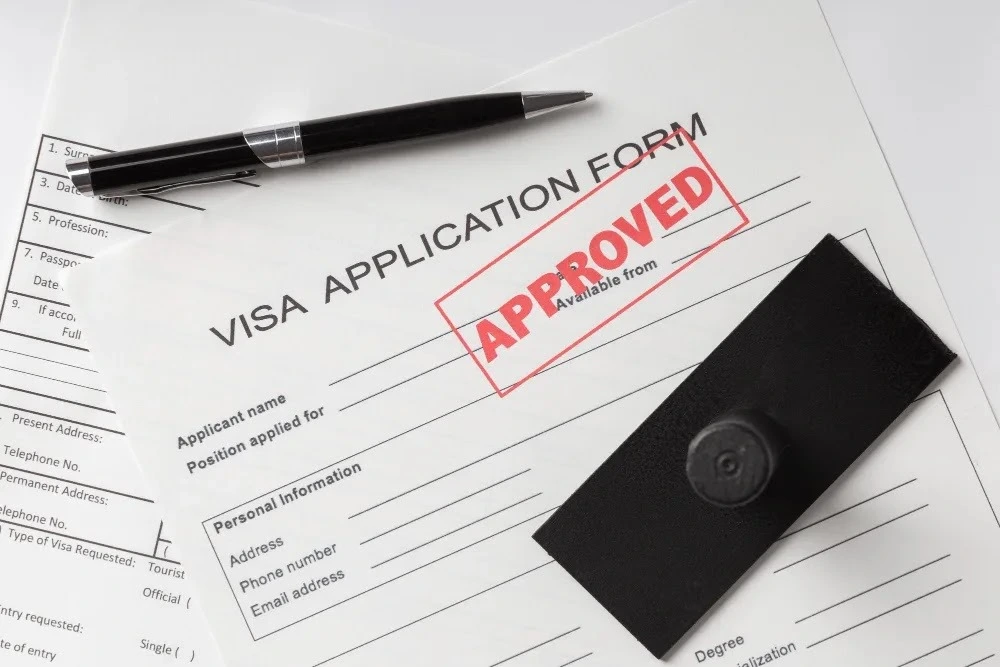
Dubai has become one of the world’s leading business hubs, attracting professionals and entrepreneurs from across the globe. If you want to expand your business to Dubai, getting a Free Zone Visa is a great way to tap into the city’s vast economic opportunities. This visa offers several benefits that simplify setting up and operating a business in Dubai’s free zones. Business Setup in Dubai Free Zone provides entrepreneurs with a streamlined process for launching a business while enjoying the benefits of foreign ownership and tax exemptions.
The Dubai free zone system encourages investment by offering 100% foreign ownership, tax exemptions, and lower operational costs. These benefits make it an ideal option for international entrepreneurs, especially those from India. By holding a free zone visa, you not only get the chance to run your business with full control but also enjoy tax-free income.
But how exactly do you obtain this coveted visa? The process may seem complicated at first, but it’s actually straightforward, especially when you understand how the system works. We will walk you through everything you need to know about the Free Zone Visa in Dubai, from eligibility requirements and documentation to costs, processing times, and the many benefits it offers. First, let’s start with;
What is a Free Zone Visa?

A free zone visa in Dubai is a residency permit connected to a company registered in a UAE free zone. This visa allows the holder to live in the UAE and work for the specific free zone entity that sponsors them. Unlike mainland visas, which are managed by the Ministry of Human Resources and Emiratisation (MOHRE), free zone visas are handled by the respective Free Zone Authority. Some of the major free zones in Dubai include:
- DMCC (Dubai Multi Commodities Centre)
- JAFZA (Jebel Ali Free Zone Authority)
- DAFZA (Dubai Airport Free Zone Authority)
Typically, a holder of a free zone employment visa in Dubai is restricted to working within the specific free zone. However, recent regulations offer more flexibility, allowing some workers to get temporary work permits for the mainland.
For Indian investors, the meaning of a free zone visa in Dubai is that they can fully own their business and enjoy residency status without relying on a local sponsor.
Types of Free Zone Visas in Dubai
Dubai offers various types of free zone visas, depending on your business needs and the free zone you choose. Here are the main types:
- Investor Visa: The investor visa allows business owners to live and work in the UAE. It is available to individuals who own a business or a share in a company registered within a free zone.
- Employment Visa: The employment visa is for individuals working with companies registered in a Dubai free zone. It allows employees to live and work in the UAE while working for their sponsor.
- Freelancer Visa: Freelancers can apply for this visa if they are self-employed and offer services within a free zone. This visa allows individuals to work independently, without being tied to a specific company.
- Dependent Visa: The dependent visa allows employees or investors with a free zone visa to sponsor their family members, such as spouses and children, to live with them in Dubai.
These visa types provide flexibility, making it easier for entrepreneurs, employees, and freelancers to live and work in Dubai’s thriving free zone economy.
How to Apply for a Free Zone Visa in Dubai?
Obtaining a Dubai free zone visa requires following a well-structured, step-by-step process. Each stage ensures you meet the UAE government’s and free zone authorities’ requirements. Let’s go through the process:
Step 1: Set Up or Join a Free Zone Company
If you set up a business in Dubai or join an existing company registered in a Dubai free zone, you must obtain a free zone trade license to operate your business. If you’re an employee, you need to sign an employment contract with a company already registered in a free zone.
- Estimated Visa cost: The cost of a free zone visa in Dubai ranges from AED 3,750 to AED 12,500, depending on the free zone and selected package. This cost often covers the trade license, visa fees, and other essential services.
- Required documents: You need to gather business registration documents and sign the employment contract.
Step 2: Apply for Entry Permit
Once you secure your job or set up your business in a free zone company, the company’s PRO applies for an entry permit on your behalf. This permit allows you to enter the UAE or change your visa status if you are already inside the country.
- Processing time: It usually takes 5 to 7 working days to process the entry permit.
- Temporary status: The entry permit allows you to complete residency formalities and begin the visa application process.
Step 3: Complete Medical Fitness Test
After you receive the entry permit, you must undergo a medical fitness test at a government-approved health center. This test checks for communicable diseases such as HIV, Hepatitis B, and Tuberculosis.
- Test results: You’ll typically receive your test results within 24 to 48 hours.
- Requirement: Passing this test is essential to proceed with your Dubai free zone visa application.
Step 4: Submit Biometrics for Emirates ID
Once you pass the medical test, you must visit the Federal Authority for Identity, Citizenship, Customs & Port Security (ICP) center to submit your biometrics, including fingerprints and a photo. This step is crucial for obtaining your Emirates ID.
- Key document: The Emirates ID is essential for activities like banking, healthcare, and accessing government services.
- Location: You’ll need to visit the nearest ICP center to complete this step.
Step 5: Apply for the Residency Visa
After completing the medical test and submitting your Emirates ID application, your company submits the residency visa application to the immigration department. This step formalizes your residency status, making you eligible to live and work under the free zone employment visa in Dubai.
- Visa benefits: Your residency visa provides you with the Dubai free zone visa benefits, such as tax exemptions and full ownership of your business.
- Company’s role: Your company will handle the submission of the residency application.
Step 6: Get a Visa Stamped in the Passport
While digital e-visas are becoming more common, some applicants still need to get a physical visa stamp in their passport. This stamp confirms your residency status and legal right to live and work in Dubai.
- Final endorsement: The physical stamp (or digital visa in some cases) is the final approval of your residency.
- New residents: With the stamp, you can now legally reside and work in Dubai under the free zone visa program.
Step 7: Renew Visa or Increase Quota
Your Dubai free zone visa is usually valid for 2 or 3 years. As the expiry date approaches, you must renew your visa. The renewal process typically involves a repeat of the medical test and Emirates ID update.
- Renewal process: Renewal is simple, involving minimal paperwork and medical checks.
- Visa quota: If your company needs more visa slots, it can increase the visa quota by upgrading to a larger office or selecting a more expansive business package.
Eligibility Criteria for Dubai Free Zone Visa
Securing a visa requires meeting specific standards set by both the UAE government and the individual free zone. Here are the eligibility criteria
| Criteria | Requirements |
| Company Requirements | The sponsoring company must have a valid trade license issued by the free zone. |
| The company must hold a valid establishment card and have enough visa quota. | |
| The visa quota depends on the size of the office space. For example, a “flexi-desk” package allows 1-2 visas, while a physical office allows 1 visa per 9 square meters. | |
| Applicant Requirements | The applicant must have a passport valid for at least six months. |
| The applicant must provide educational certificates relevant to their job role (usually attested). | |
| A medical fitness test is mandatory to prove the applicant is free from communicable diseases. | |
| The applicant must obtain a security clearance from the UAE immigration authorities. | |
| Special Notes for Indian Nationals | Indian citizens must ensure their educational degrees are attested by both the UAE Embassy in India and the Ministry of Foreign Affairs (MOFA) in the UAE. |
| Ensure that the names on all documents match exactly to avoid delays. |
Meeting these requirements ensures you can apply for a free zone visa in Dubai, which provides many benefits, such as 100% business ownership and tax exemptions.
Benefits of a Dubai Free Zone Visa: Why Indian Entrepreneurs Prefer It?
The Dubai free zone visa offers many compelling benefits for Indian business owners who want to expand globally.
1. Tax Efficiency
One of the key advantages of the free zone visa in Dubai is its tax system. Free zone companies benefit from 0% corporate tax on qualifying income, which includes profits from business activities within the zone. Employees and investors also pay 0% personal income tax, allowing them to retain more of their earnings.
2. Residency and Mobility
When you hold a free zone visa in Dubai, you gain UAE residency. This makes it easier for you to open personal bank accounts, get a driver’s license, and even enroll your children in schools. The visa also allows for visa-free or visa-on-arrival travel to several countries that offer concessions to UAE residents.
3. Business Expansion
Setting up in a free zone provides a strategic hub for international trade. It offers easy access to markets in the GCC, Africa, and Europe. Dubai Free Zone Company Registration for Indian Entrepreneurs enables them to establish a business presence in Dubai while benefiting from favorable tax policies and full ownership rights. Indian entrepreneurs can use this base to re-export goods or manage global consultancy contracts with ease.
Common Challenges and Solutions for Obtaining a Dubai Free Zone Visa
Applicants often face challenges that can delay the process. By being aware of these, you can plan and avoid issues.
| Challenges | Solutions |
| 1. Visa Quota Limitations: Small offices usually have limited visa slots. | Upgrade to a larger office space or choose a dedicated desk package to instantly increase your visa quota. |
| 2. Document Attestation Delays: Getting your degrees attested in India can take time. | Start the attestation process at least one month before applying for your visa, or use a professional attestation service to speed things up. |
| 3. Medical Unfitness: Failing the medical test leads to immediate deportation. | Pre-screen for communicable diseases in your home country before traveling to the UAE. |
Pro Tips for Indian Applicants Seeking a Dubai Free Zone Visa
Navigating the Dubai free zone visa processing time and requirements requires careful planning. Keep these tips in mind to smooth out the process:
- Use a Trusted Consultant: A consultant can manage the entire process, from license issuance to visa stamping, reducing the risk of rejection due to technical errors.
- Prepare Documents Early: Have high-quality digital scans of your passport and photos ready. Also, ensure all legal translations into Arabic are done by approved translators.
- Maximize Visa Quota: When choosing a free zone package, consider your future hiring needs. A slightly more expensive package with a higher visa allocation often saves you money on future upgrades.
- Maintain Clean Records: Avoid any overstay fines on previous visits, as these can block new visa issuance. Plan your visa renewal at least 30 days before the current visa expires.
Conclusion
Obtaining a free zone visa in Dubai is a clear and organized process that offers many benefits. It provides tax exemptions, full business ownership, and access to high-quality living. For Indian nationals, it serves as a secure way to enter international markets and enjoy stable residency in the UAE.
By understanding the regulations and following the step-by-step guide, applicants can easily navigate the process. Whether you’re a freelancer, employee, or business owner, the free zone visa is an essential tool for success in the UAE’s thriving economy. Proper planning and expert support will ensure a smooth and successful move to Dubai.
Frequently Asked Questions
No, a free zone visa in Dubai generally restricts you to working within the specific free zone that sponsored you. If you want to work on the mainland, you must obtain a separate permit or a No Objection Certificate (NOC) from the free zone authority. The free zone visa is tied to the specific company or zone that sponsors you, limiting your employment options to that area.




